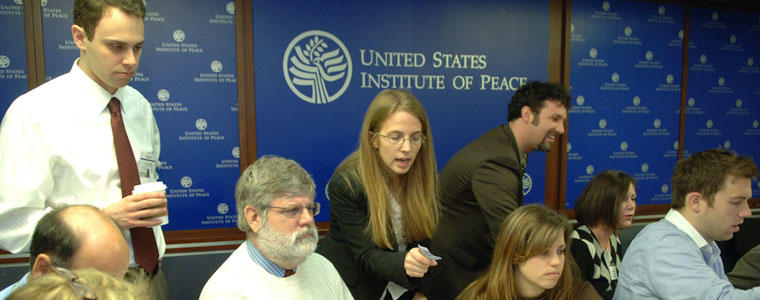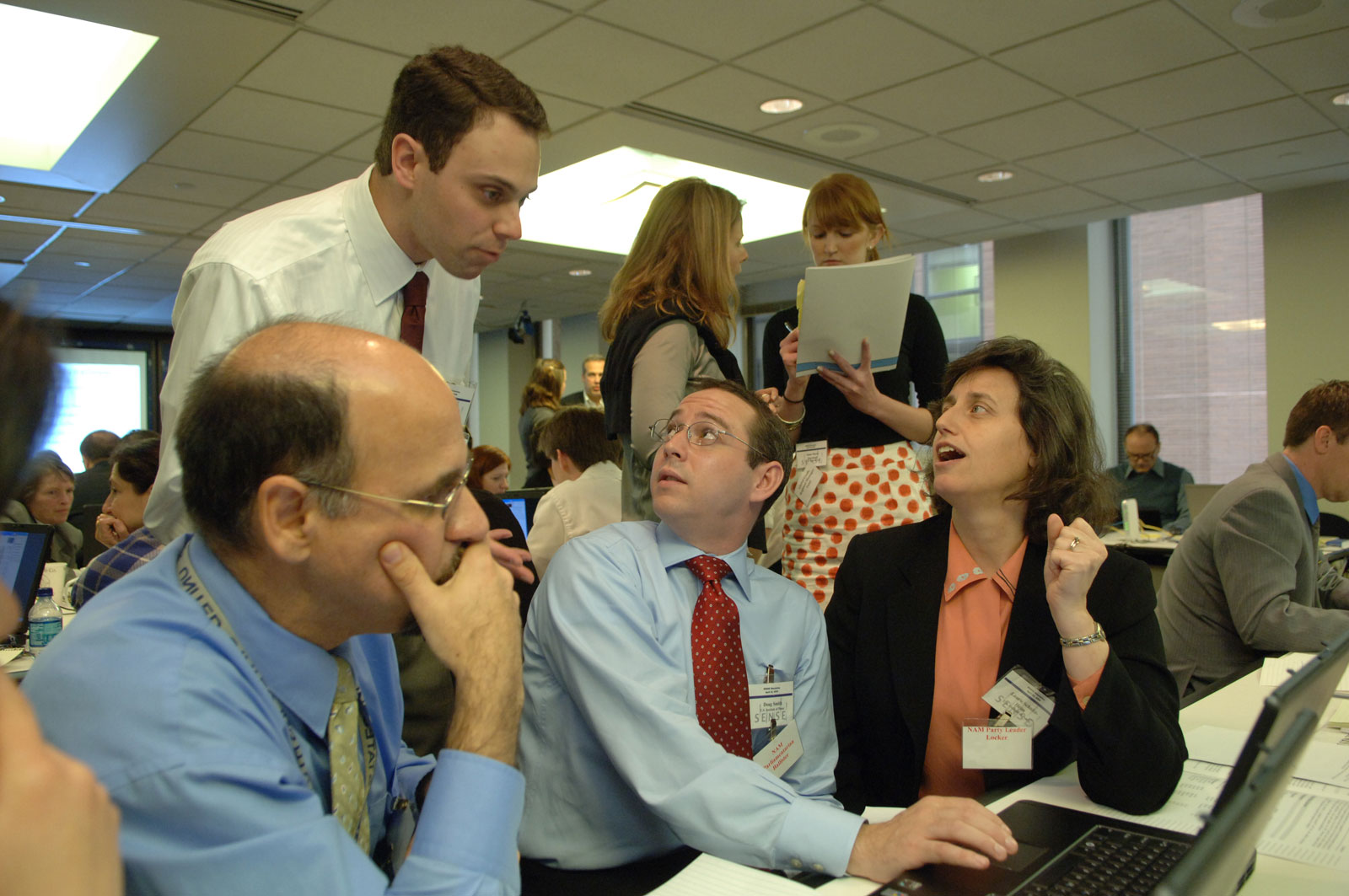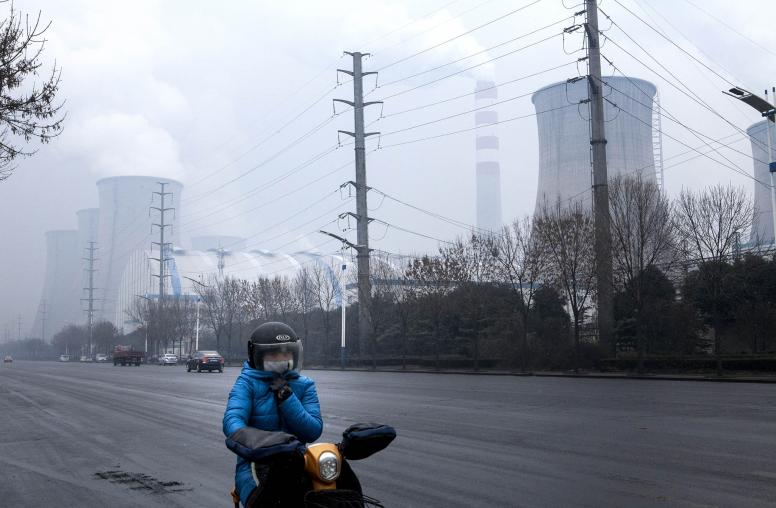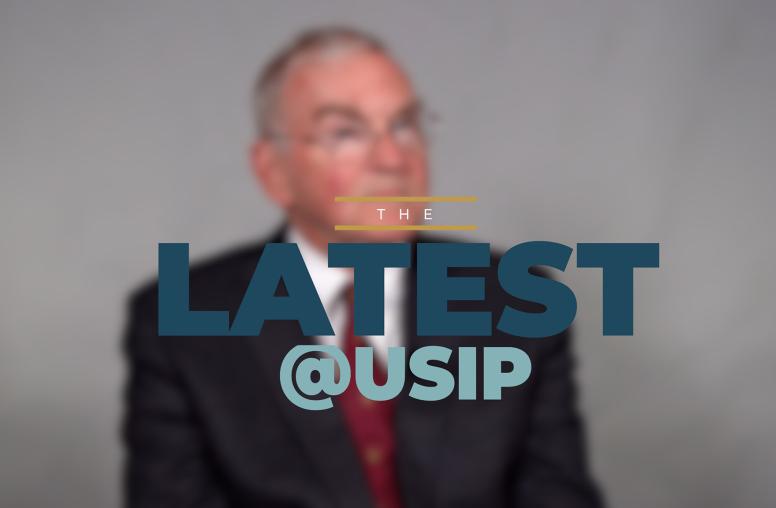On Wednesday, April 22, the Institute’s Education and Training Center/International (ETC/I) hosted a half-day demonstration of the Strategic Economic Needs and Security Exercise (SENSE) for members of the Institute staff and a handful of outside guests. SENSE is a computer-facilitated simulation that models the conditions of an imaginary country (“Akrona”) emerging from conflict.

Players were assigned roles representing government officials, private firms, civil society, and international actors. They were given the opportunity to identify, coordinate, and integrate economic, social, political, and military policies to foster recovery and reconstruction.

SENSE was initially developed by the Institute for Defense Analysis (IDA) to help implement the Dayton Accords. The simulation is used to strengthen capabilities of decision-makers to prevent conflict in fragile states and manage post-conflict transitions successfully. Working both online and in face-to-face role-playing, Institute staff participants were challenged to address the many hurdles facing Akrona in its post-conflict recovery: economic instability, a crumbling infrastructure, natural resource allocation, and health care crises, to name but a few.
SENSE has been successfully employed (by USIP and/or IDA) in overseas training programs with participants from Bosnia, Kosovo, Montenegro, Iraq, Poland, and Georgia. In 2005, USIP expanded the program to train Iraqis to run the simulation in Iraq for other Iraqis. The Institute also gave the Poles t raining to run SENSE simulations in 2006; since then, they have successfully trained local and regional players, reaching out as far as Afghanistan. This has helped leaders to better understand the complex negotiations necessary in a conflict environment. Despite the truncated nature of Wednesday’s program – a typical simulation would run three to five days – role players were uniformly impressed with both the message behind the medium and the medium itself. SENSE provides a powerful tool for teaching the hard choices facing every facet of a peacebuilding scenario.
raining to run SENSE simulations in 2006; since then, they have successfully trained local and regional players, reaching out as far as Afghanistan. This has helped leaders to better understand the complex negotiations necessary in a conflict environment. Despite the truncated nature of Wednesday’s program – a typical simulation would run three to five days – role players were uniformly impressed with both the message behind the medium and the medium itself. SENSE provides a powerful tool for teaching the hard choices facing every facet of a peacebuilding scenario.
In partnership with George Mason University and the Institute for Defense Analysis, ETC/I will be offering a full, three-day SENSE simulation on May 5-7 at the Dupont Hotel in Washington, D.C. For more information, please contact Jeffrey Krentel at jkrentel@usip.org or http://sense.eventbrite.com/.



